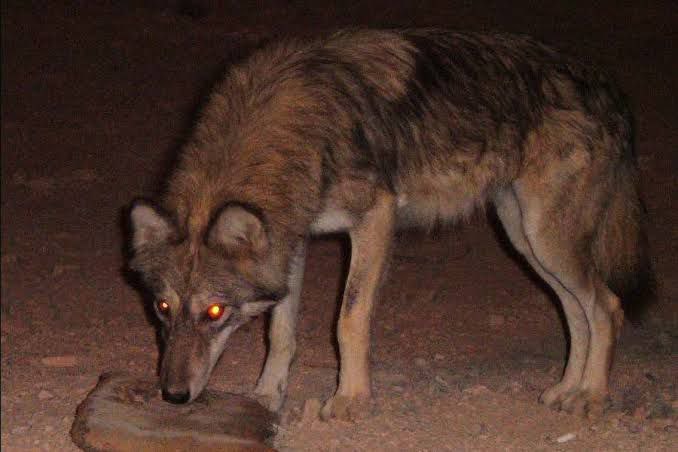News
Wolves and hyena attacks worry livestock breeders in North-East Syria

Livestock breeders in the countryside of North-East Syria are complaining of increasing attacks by predatory animals, especially wolves and hyenas, which have caused damage to their livestock, in the areas of Al-Jarniyah in Al-Tabqa countryside, Al-Hol in the southern countryside of Al-Hasakah, and Qamishlo/Al-Qamishli countryside. Wolves sneak into barns to prey on livestock, which worries the owners and increases their suffering.
Reasons for the spread of predators
Tawfiq Al-Hassan, a resident of Al-Hurriya village in Al-Jarnia countryside attributes the reason for the increase in these attacks to the spread of deep valleys and wide olive fields in the region, which provide a haven for these animals.
He explained that the losses were limited to the death of livestock, as wolves prey on at least four of them in each attack, noting that the villages of Al-Mazyouna, Bir Dhaher, and Al-Wadiyan are the most affected, according to him.
Protection measures
Al-Hassan explained that the measures taken to protect the barns are limited to permanent guarding and providing lighting around them, as wolves avoid bright areas.
In the same context, Abu Omar, a livestock breeder from the countryside of Tal Kochar/Al-Yaroubiyah, mentioned that his sheep were repeatedly attacked by wolves in the Al-Hol area and some areas of the Qamishlo/Al-Qamishli countryside during the winter, causing the death of five heads in the last attack.
Increasing suffering and difficulties in protecting
In turn, Khalaf Al-Aliwi, another livestock breeder from the Tal Kochar/Al-Yaroubiyah countryside, confirmed that the attacks have become continuous in recent years, forcing them to appoint guards to accompany the shepherds and protect the herds. He added that the ruggedness of the areas hinders efforts to hunt these animals, noting that their spread has increased since ISIS took control of Sinjar region, which is their original habitat.
Limited formal procedures
For his part, Mohammad Ahmi from the Environmental Department of the Autonomous Administration in Qamishlo/Al-Qamishli indicated that there is coordination with the concerned authorities to take the necessary measures when complaints are received regarding the presence of predatory animals in residential areas. He added that the study of establishing or reactivating a natural reserve is still under investigation, due to its need for “large funding,” as he described it.
